Viral fevers are zoonotic illness caused by viruses. It is due to acute viral infections that occur along with the seasonal changes and the presence of viral strains in the environment. Fever is generally characterized by a rise in normal body temperature. During monsoon viral fever has its wide distribution among all age groups.
In this article, we are going to discuss viral fever home remedies, it’s causes, symptoms, preventive measures & treatments.
A rise in the body temperature is apparently capable of killing many disease-producing organisms. Therefore low fevers should go untreated unless it’s not chronic. But due to negligence and lack of awareness, viral fever with troubling symptoms very often goes untreated until they progress to a severe stage.
Apart from this, self-medication with antipyretics (drugs that decrease body temperature) and antibiotics increases the risk of complications. Hence, early diagnosis of viral fever is pivotal. Understanding more about viral fever and awareness helps diagnose them at the earliest possible.
Symptoms of viral fever
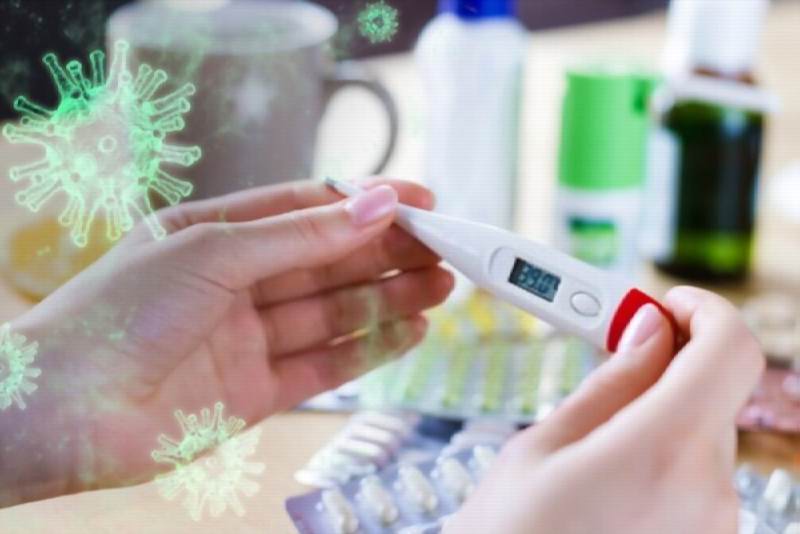
The average normal body temperature is 98.20±0.70F (36.80C± 0.40C) with normal daily temperature variation of 0.50C. Fever is an elevated body temperature that exceeds the normal daily variations.
Depending on the cause of your fever, additional signs and symptoms of viral fever may include:
- Sweating
- Chills
- Headache
- Muscle aches and pains
- Loss of appetite
- Sore throat
- Skin rash
- Irritability
- Dehydration
- A feeling of weakness
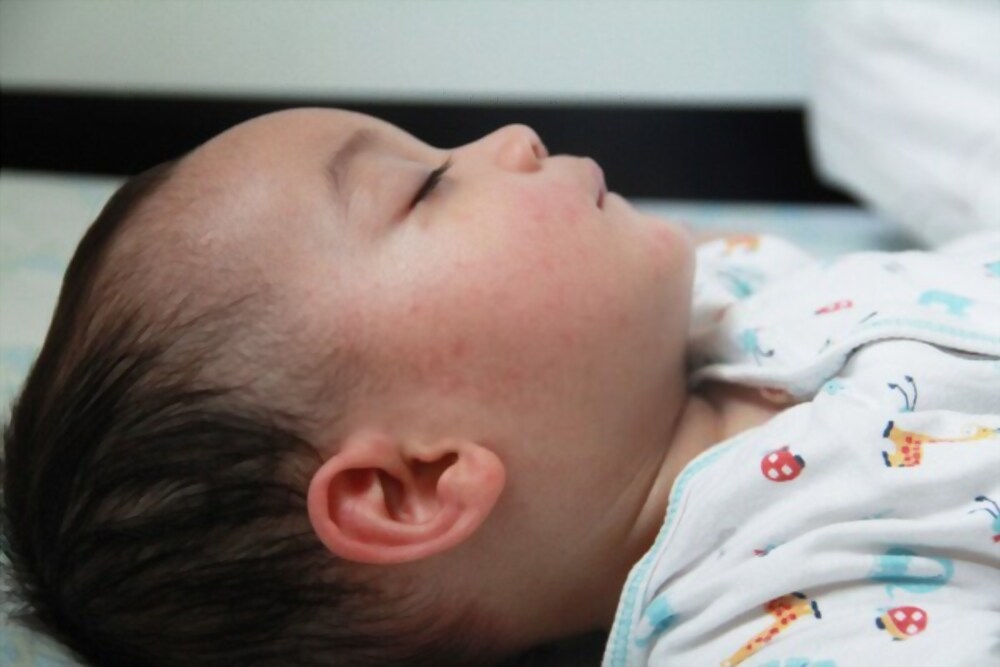
Children of age group between 6 months and 5 years may also suffer febrile seizures during viral fever. About one third of the children experiencing febrile seizure often have another one, most commonly within the next 12 months.
What causes viral fever?
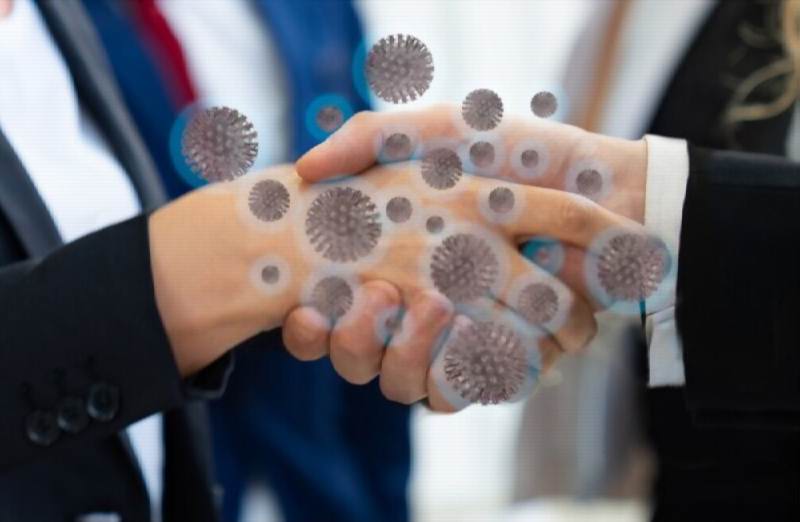
Intake of contaminated water or food most commonly causes viral fever; direct contact with an infected person is also another important cause. Then the infection spreads locally and then enters the body.
Fever is nothing but a rise in body temperature due to the fight with foreign bodies (pathogens) by the body’s immune system.
→ Viral fever is transferred from one person (infected) to another on direct contact or it may also be transferred through sexual contact.
→ Consumption of contaminated water is the main cause of viral fever. Eating contaminated food may also increase the risk of viral fever
→ A stay in contaminated areas with other infected people may also cause viral infections
→ Insects like many species of mosquitoes can carry different viruses and their bite causes viral fevers like dengue and malaria.
→ Blood transfusion with virally infected person also causes viral fever in case of viremia.
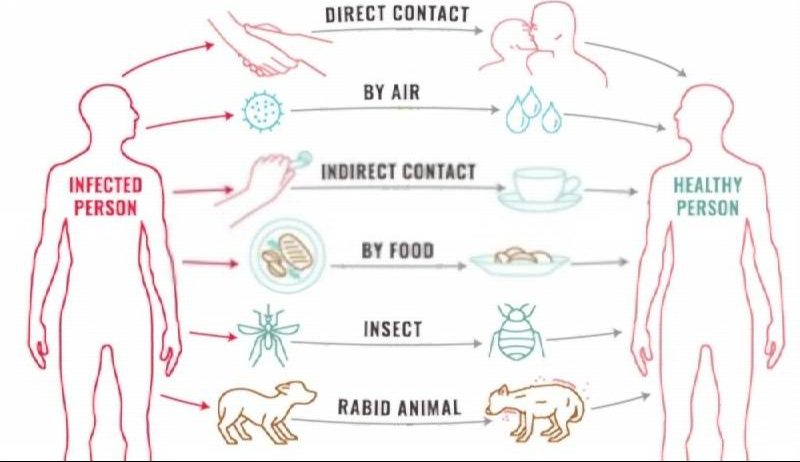
Diagnosis of Viral Fever
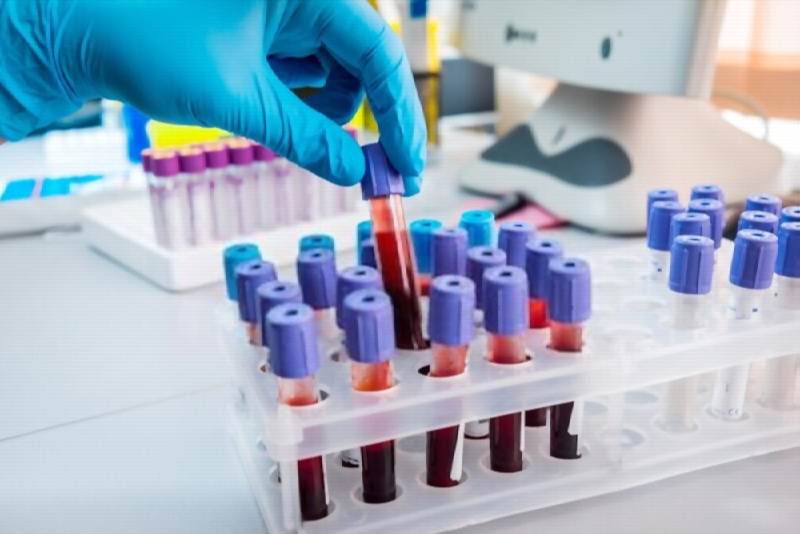
In a viral infection, the sign and symptoms are more or less similar to that of bacterial infection. Therefore for a medical practitioner, it becomes necessary to eliminate the bacterial infection first. A medical practitioner can do it by considering medical records, signs & symptoms, and doing cultures and other microscopic examinations of clinically important samples.
For an instance, if you are having a bacterial infection the doctor is more likely to go for a swab (pharynx) test, sputum examination or cough sample examination for determining whether you are having a bacterial infection or not. A negative result gives hints towards probable viral infections.
Blood tests, sputum examinations, and urine tests also help in finding out viral infection. It includes the WBC count, C-reactive protein, serology, etc.
A laboratory diagnosis of viral fever is not always necessary; it’s in general diagnosed by an expert doctor by analyzing the signs and symptoms.
Prevention of viral fever
Viral fever can be prevented like many other infectious diseases. It takes an extra amount of care for its prevention as viruses like causative pathogen of common cold are very potent in transmission.
Below here are some of the preventive measures..

- 1.) Wash your hands in properly for at least 20 seconds,
– Especially after being in a public place.
– After touching surfaces that may have been frequently touched (door knobs, handles, shopping carts).
– Before eating and after using the toilet.
– After sneezing, blowing your nose or coughing.
– After petting animals, and during the travel on public transportation.
– Before and after cooking.

- 2.) Teach your children proper hand washing technique
– Starting from wetting on running water then leathering with soap and rubbing both hands properly for 20 seconds and then drying it with dry, clean towel.


- 3.) Always keep hand-sanitizer with you
– Many a time you may not have a proper access to a washroom in such conditions hand-sanitizer will take care.

- 4.) Avoid touching your nose, mouth or eyes frequently since these are the main route that viruses and bacteria enter your body to cause infection.

- 5.) Cover your mouth and nose whenever you sneeze or cough when possible turn away from someone coughing or sneezing to avoid the droplet transmission.

- 6.) Avoid sharing pen, water bottles and other utensils among friends or in families whenever there is infected members.
Treatment of viral fever

Viral fever is not the same as bacterial fever, if you keep on taking antibacterial (antibiotics) drugs on viral fever it is not likely to cause any benefit rather it will develop resistance. The treatment of viral fever is based on the signs and symptoms and antiviral drugs which are not necessary unless there is any associated complication or severely diseased condition.
A viral fever can be a medical emergency if –
● the body temperature for a child reaches 1040F for children or 1030F for an adult, in case of lower-grade fevers, no specific treatment required. However, the following anti-viral therapy may help improve the symptoms.
● on taking over the counter drugs, like acetaminophen (paracetamol), Ibuprofen, etc. can lower down the body temperature. For someone of age more than 18-years, Aspirin also works well. For the patients of age less than 18 years there is a chance of developing Reye’s syndrome, in which aspirin causes severe damage to the brains and livers.
● don’t stop taking a bath; unlike people think that taking a bath may worsen your health condition but actually it does better, it makes you feel rather comfortable. But yes, avoid cold water and do take a bath with lukewarm water and keep your body warm.
● Drink plenty of fluids. Keep your body hydrated and cool down body temperature when it’s high.
● Take rest, it’s necessary in such conditions. The more you will rest, the earlier you’ll get rid of it.
● Many a time you’ll see a doctor prescribing antibiotics but it has nothing to do with the virus. They prescribe it to counter the secondary infections.
When to see a doctor?

Viral fever itself is not always a cause for calling a doctor. But in some instances, it may be necessary to call for a doctor.
Infants
Unexplained fever is always a cause for concern in infants and in children but not necessarily in adults. Call for a paediatrician if your child is:
- Of age, more than 3 months and has a rectal temperature of 100.40 F (380 C) or even higher.
- Of age between 3rd and 6th months and has a rectal temperature up to 1020F (38.90C) and appears to be unusually irritable or lethargic or has a body temperature higher than 1020F (38.90C).
- Of age between 6th and 24th months and has a rectal temperature higher than 1020F (38.90C) that lasts for a longer period than one day but shows no other symptoms. If your child has other signs and symptoms, such as a cold, cough, diarrhoea, you should seek the attention of a child specialist.
Children:
There is probably no cause for concern until your child is responsive after getting a fever and still responding to facial expressions and also making eye contacts. Playing with toys and drinking fluids.
When to call a child specialist?
- When your child is restless or irritable & vomits repeatedly also has a severe headache or stomach ache, or has any other symptoms that cause significant discomfort.
- When your child has a fever after being left in a hot car. In case of heat exhaustion seek medical attention immediately.
- When your child has a fever that lasts for a longer duration of more than three days.
- When your child appears to be restless and has poor eye contact with you.
Seek the doctor’s attention when your child has pre-existing immune deficiency and in case there is a chance of super-infection or secondary infection.
Adults
Call your medical advisor if your body temperature is 1030F (39.40C) or higher. When any of these signs and symptoms accompanies your viral fever seek immediate medical attention.
- Severe headache
- Skin rash, especially when the rashes rapidly worsen.
- Unusual bright light sensitivity.
- Stiffer neck and start paining on bending your head forward.
- Mental confusion.
- Persistent vomiting.
- Breathing difficulty or chest pain.
- Pain abdomen or pain on urination.
- Seizures or convulsions.
What to Do & what not to Do in Viral Fever:

Do’s:
Take enough rest it will help your medications work properly and it will recover your immunity. Complete the whole course of medications (especially of antibiotics) to cure the infection from the root. Take enough amounts of fluids and avoid heavy meals; as lighter meals get easily digested.
Don’ts:
Taking medicines without proper knowledge may worsen the condition moreover antibiotics may develop resistance. So avoid self medication. Don’t share stationeries among others this will decrease the chances of spread. Avoid antibiotic intake unless prescribed by your doctor.
You should neither be in a cold place nor should you even wrap yourself in a heavy blanket on getting chills. But you should be in a place with moderate temperature.
Viral Fever Home Remedies
Viral fever is one of the most common diseased conditions for adults as well as children these days. Sore throat, coughs, hoarseness, runny nose, and diffused body-pain are the common symptoms associated with it. The risk of viral fever is even higher with the seasonal changes.
But above all, there are a lot of viral fever home remedies that can help us a strong immune response and an early recovery. These home remedies of viral fever are mostly free of side effects and are easily available and accessible to all.
5 Amazing viral fever home remedies that effectively help you in fighting against the virus.
1.) Lime Juice & Honey
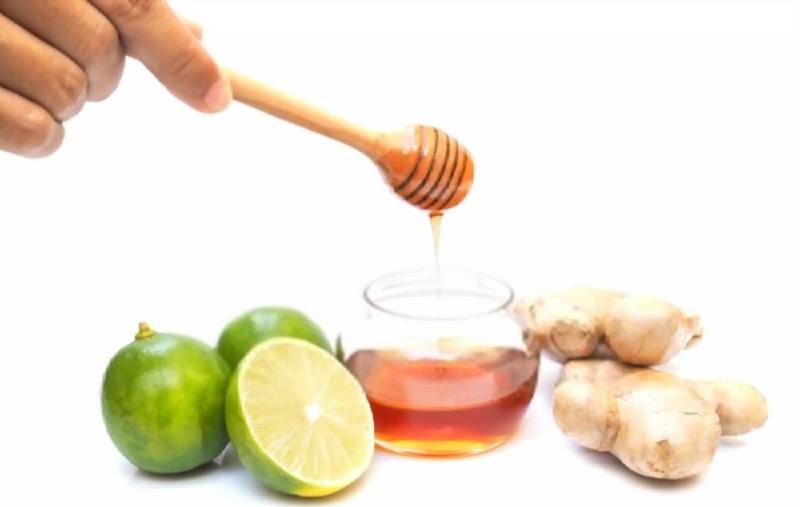
It’s one of the most popular viral fever home remedies. A perfect mixture of honey and lime juice is useful in reliving viral symptoms such as cold and flu.
Honey provides an instant energy, while lime helps to cut toxicity.
How to make this juice?
Mix two teaspoonfuls of honey and lemon juice. Add one teaspoonful of ginger juice in the lemon-honey blend. take these preparations three to four times a day.
2.) Viral Fever Home Remedies: Tulsi Leaves
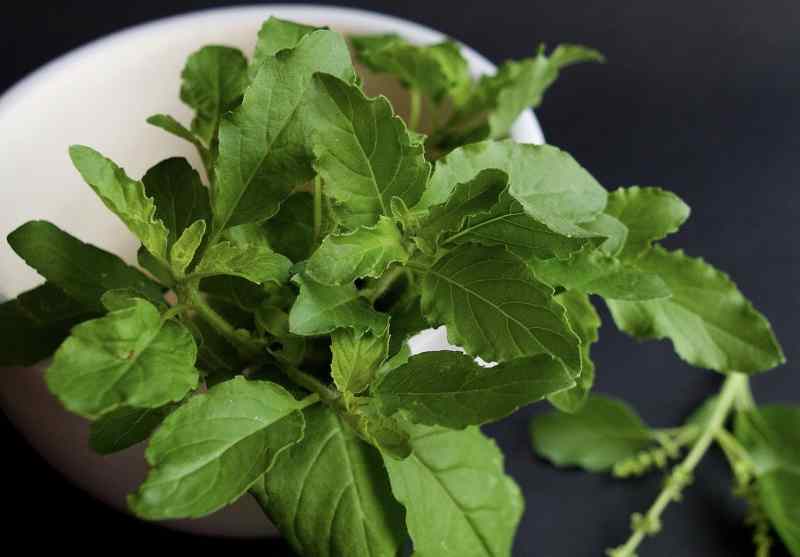
Tulsi leaves have bactericidal, germicidal and fungicidal properties; these leaves are yet another efficacious home remedy for symptomatic treatment of viral fever.
How to prepare?
All you have to do is to get some clean tulsi leaves and boil them in water, and then blend with a half-teaspoon clove powder. Keep the solution boiling until the water evaporates out to half. Serve this solution in a regular basis to fight with the infection.
3.) Black Pepper and Ginger Tea
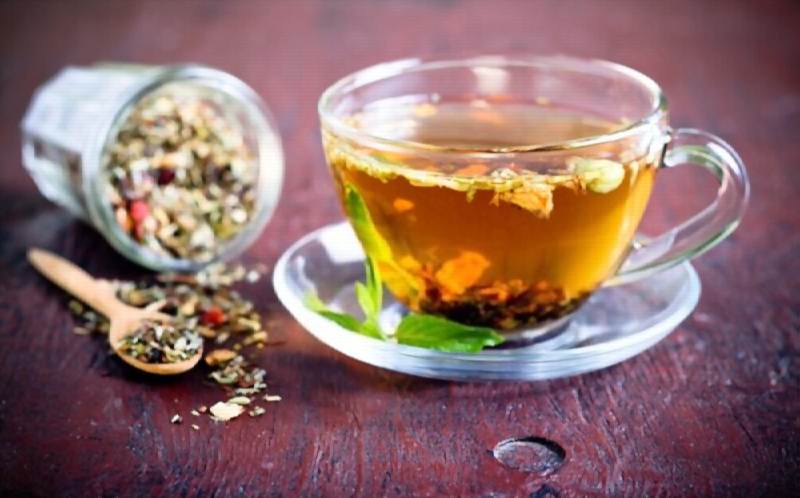
In children; irregular bowel is one of the most common associated symptoms in viral fever. For its effective treatment, you may try this black pepper and ginger tea. Ginger has anti-inflammatory and analgesic properties whereas Pepper helps fighting toxicity and collectively they are suitable for relieving the viral symptoms. It is easy to make black pepper tea.
How to prepare?
Boil water, milk, and ground/ chopped ginger and then add tea leaves to boil for a while. In this way make regular ginger tea first then put a pinch of black pepper in that ginger tea and boil. Your tea is ready for serving!
4.) Rice Starch
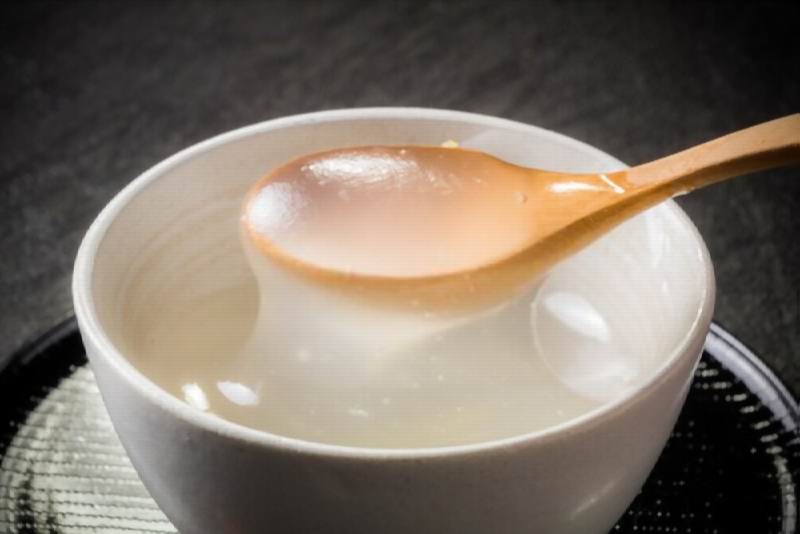
Undeniably rice starch is an effective traditional viral fever home remedy. It is a natural & healthy drink that works as a diuretic (increases urine output) agent and boosts immunity, especially among children and the elderly.
How to prepare rice starch?
To prepare rice starch, cook rice till it gets half-cooked, and then take out the liquid. Rice starch is recommended to drink warm for an immediate effect.
Rice starch has absolutely no side-effects; this home remedy is readily available in the kitchen and is hugely beneficial in alleviating the viral symptoms.
5.) Coriander Seeds

Coriander seeds contain essential vitamins and nutrients; therefore it’s very much effective in boosting your immunity. Coriander seeds also contain compounds having antibiotic activity and also contain volatile oils.
Therefore coriander seeds are great herbal medicine for relieving viral infection. You can simply make coriander tea or coriander water-mixture to seek the benefits of coriander leaves,
Conclusion
Viral fever refers to all those fevers that result from a viral infection, such as the common cold, dengue fever, chikungunya fever, etc.
Although most of the viral fevers resolve on their own within a few days, some cases become severe and require medical attention.
Whenever your temperature reads 103°F (39°C) or higher, it’s time to seek attention of a doctor. And don’t forget to take as much rest as possible and keep your body hydrated.

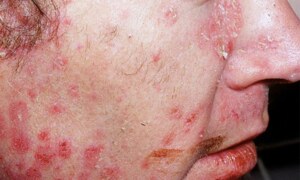
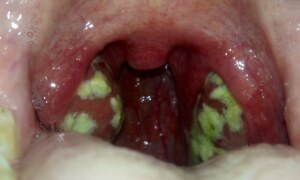
Hello there! This article couldn’t be written any better!
Looking at this article reminds me of my previous roommate!
He constantly kept preaching about this. I will forward this information to him.
Pretty sure he will have a very good read. Many thanks for sharing!
I just like the valuable information you supply on your articles.
I will bookmark your weblog and take a look at once
more here regularly. I am quite sure I’ll be informed many new stuff proper right here!
Best of luck for the following!